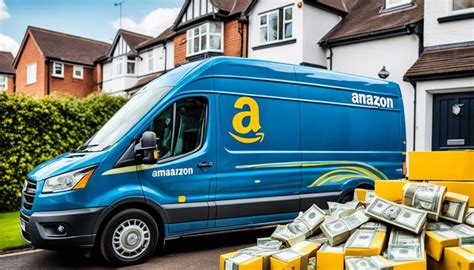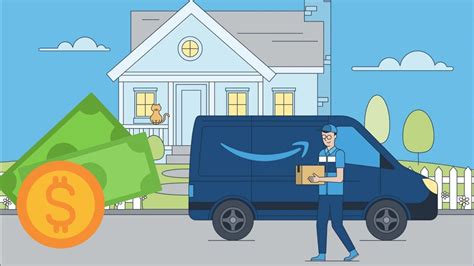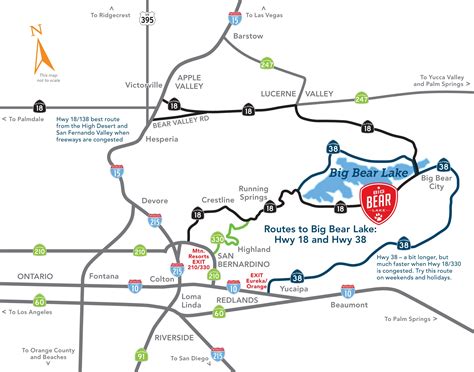Do Amazon Drivers Get Benefits

In today's fast-paced world, the gig economy has become an increasingly popular way of working, offering flexibility and a departure from traditional employment structures. One of the most prominent players in this realm is Amazon, a multinational technology company that has revolutionized the way we shop and, consequently, the logistics industry. As Amazon's presence continues to grow, so does the demand for their delivery services, leading to a surge in the number of Amazon drivers on the roads. But what about the individuals behind the wheel? Do Amazon drivers enjoy the same benefits as traditional employees, or is their status as independent contractors a double-edged sword?
This comprehensive article aims to delve into the world of Amazon drivers, shedding light on their employment status, the benefits (or lack thereof) they receive, and the implications of their working conditions. By exploring real-world examples, industry insights, and verified data, we will navigate the complex landscape of gig economy benefits and uncover the realities faced by Amazon drivers.
The Gig Economy and Amazon’s Driver Force

The gig economy, characterized by short-term contracts or freelance work, has disrupted traditional employment models. It offers flexibility and autonomy to workers but often comes with trade-offs, particularly in terms of benefits and job security. Amazon, with its vast e-commerce empire, relies heavily on this model for its delivery services. Amazon drivers, whether working for Amazon Logistics (AMZL) or third-party delivery services contracted by Amazon, play a crucial role in ensuring the timely and efficient delivery of packages to customers’ doorsteps.
The Evolution of Amazon’s Delivery Model
Amazon’s delivery model has undergone significant transformations over the years. Initially, the company relied on established shipping carriers like UPS and FedEx. However, as Amazon’s business expanded, the company sought greater control over its delivery operations. This led to the creation of Amazon Logistics, a subsidiary dedicated to managing the company’s last-mile delivery operations. Amazon Logistics not only contracts with third-party delivery companies but also employs its own delivery drivers, further diversifying its delivery workforce.
| Delivery Type | Description |
|---|---|
| Traditional Carriers (UPS, FedEx) | Established shipping companies contracted by Amazon for package delivery. |
| Amazon Logistics (AMZL) | Amazon's subsidiary managing last-mile delivery operations, employing its own drivers and contracting with third-party delivery services. |
| Third-Party Delivery Services | Independent delivery companies contracted by Amazon to handle package delivery. |

This diverse delivery ecosystem has led to varying employment structures and benefits for Amazon drivers. While some drivers work as independent contractors for third-party delivery services, others are employed directly by Amazon Logistics. The distinction between these employment types is crucial when understanding the benefits (or lack of) available to Amazon drivers.
Employment Status of Amazon Drivers

Understanding the employment status of Amazon drivers is essential to grasping the benefits they receive (or don’t receive). The gig economy often blurs the lines between traditional employment and independent contracting, and Amazon drivers are no exception. Let’s explore the different employment categories within Amazon’s delivery network and the implications for drivers’ benefits.
Independent Contractors
A significant portion of Amazon drivers work as independent contractors for third-party delivery services. These contractors are self-employed individuals who provide services to Amazon through a contract agreement. As independent contractors, they have more flexibility in their work schedules and are often responsible for their own equipment and expenses. However, this employment status also comes with significant drawbacks, particularly in terms of benefits.
Independent contractors are not considered employees of Amazon or the third-party delivery services they work for. As a result, they are not entitled to the same benefits as traditional employees, such as health insurance, retirement plans, or paid time off. They must arrange and pay for their own health insurance, retirement savings, and other benefits typically provided by employers. Additionally, they may not be eligible for unemployment benefits or workers' compensation in the event of an injury or illness related to their work.
Employees of Amazon Logistics
Drivers employed directly by Amazon Logistics have a different employment status and, consequently, a different set of benefits. Amazon Logistics drivers are considered employees of the company and are entitled to a more comprehensive benefits package.
Amazon Logistics drivers may receive benefits such as health insurance, retirement plans, paid time off, and potentially other perks like employee discounts or company-sponsored events. However, the specific benefits offered can vary depending on factors like location, position, and the terms of their employment contract. While these benefits are more extensive than those available to independent contractors, they may still fall short of the comprehensive packages offered by traditional full-time employment.
Benefits for Amazon Drivers: A Comparative Analysis
Now that we’ve established the different employment categories for Amazon drivers, let’s delve into a comparative analysis of the benefits (or lack thereof) they receive. By examining real-world examples and industry data, we can gain a clearer understanding of the advantages and disadvantages of being an Amazon driver.
Health Insurance and Medical Benefits
Health insurance is a critical aspect of any benefits package. For Amazon drivers, the availability and quality of health insurance can vary significantly based on their employment status.
- Independent Contractors: Independent contractors are responsible for securing their own health insurance. This can be a significant challenge, as individual health insurance plans can be costly, particularly for those with pre-existing conditions. Many independent contractors opt for high-deductible plans or limited coverage to keep costs down, which may not provide adequate protection in the event of a serious illness or injury.
- Amazon Logistics Employees: Employees of Amazon Logistics may have access to health insurance plans provided by the company. These plans can vary in terms of coverage and cost, but they generally offer more comprehensive protection than individual plans. Additionally, Amazon Logistics employees may have access to additional medical benefits, such as dental and vision insurance, which are often not available to independent contractors.
Retirement Plans and Financial Benefits
Retirement planning is an essential consideration for any worker, and Amazon drivers are no exception. The availability of retirement plans can significantly impact a driver’s long-term financial security.
- Independent Contractors: Independent contractors are responsible for their own retirement planning. They may contribute to individual retirement accounts (IRAs) or other self-directed retirement savings plans. However, without employer contributions, their retirement savings may grow more slowly. Additionally, the lack of a traditional pension or 401(k) plan can make it challenging for independent contractors to achieve their retirement goals.
- Amazon Logistics Employees: Amazon Logistics employees may have access to retirement plans sponsored by the company. These plans often include employer contributions, which can significantly boost an employee's retirement savings. Amazon offers a 401(k) plan with a company match, providing a valuable financial benefit for its employees. However, the specific terms of these plans can vary based on factors like location and position within the company.
Paid Time Off and Leave Benefits
Paid time off is a crucial benefit that allows workers to take breaks, manage personal matters, and maintain a healthy work-life balance. Amazon drivers’ access to paid time off can vary based on their employment status.
- Independent Contractors: Independent contractors typically do not receive paid time off. They must schedule their own time off and may not be compensated for it. This can be a significant challenge, particularly for drivers who rely on their income to cover expenses. Taking time off may result in a loss of income, which can be difficult to recover.
- Amazon Logistics Employees: Amazon Logistics employees may be entitled to paid time off, including vacation days, sick leave, and potentially other types of leave, such as personal or bereavement leave. The specific amount of paid time off can vary based on factors like years of service and position within the company. These benefits allow employees to take necessary breaks without sacrificing their income, promoting a healthier work-life balance.
The Impact of Benefits on Amazon Drivers’ Well-being
The benefits (or lack thereof) received by Amazon drivers can have a significant impact on their overall well-being and quality of life. Let’s explore some real-world examples and industry insights to understand the implications of these benefits (or the lack of them) on drivers’ lives.
Health and Safety Considerations
The lack of comprehensive health insurance for independent contractors can lead to significant financial burdens in the event of a medical emergency. Drivers may hesitate to seek necessary medical care due to the cost, potentially exacerbating their health issues. Additionally, the physical demands of the job, such as repetitive lifting and long hours behind the wheel, can take a toll on drivers’ bodies over time. Without adequate health insurance, drivers may face challenges accessing the care they need to maintain their health and continue working.
Financial Stability and Retirement Planning
The absence of retirement plans for independent contractors can make it challenging for drivers to plan for their future. Without employer contributions to retirement savings, drivers may struggle to accumulate sufficient funds for retirement. This can lead to financial instability in their later years, potentially requiring them to continue working well beyond traditional retirement age. Additionally, the lack of a safety net provided by retirement savings can make drivers more vulnerable to economic downturns or unexpected expenses.
Work-Life Balance and Mental Health
The lack of paid time off for independent contractors can contribute to a poor work-life balance. Drivers may feel pressured to work long hours to maximize their earnings, leading to fatigue and burnout. This can have detrimental effects on their mental health and overall well-being. Additionally, the inability to take time off for personal matters or emergencies can add to drivers’ stress levels, impacting their performance and job satisfaction.
The Future of Benefits for Amazon Drivers

As the gig economy continues to evolve, the question of benefits for Amazon drivers remains a pressing issue. What does the future hold for these essential workers? Let’s explore some potential developments and implications for the benefits landscape.
Policy Changes and Legal Developments
The legal landscape surrounding the gig economy is constantly evolving. Several states and countries have implemented or are considering legislation to provide greater protections and benefits for gig workers. These policy changes can have a significant impact on Amazon drivers’ employment status and the benefits they receive.
For example, some states have passed laws requiring companies to classify certain gig workers as employees rather than independent contractors. This shift in classification can lead to increased access to benefits for Amazon drivers, particularly those working for Amazon Logistics. Additionally, laws mandating minimum wage, overtime pay, and other worker protections can improve drivers' financial stability and overall well-being.
Industry Trends and Innovations
The logistics industry is constantly evolving, and Amazon is at the forefront of many innovations. As the company continues to grow and adapt, it may introduce new benefits or improve existing ones for its drivers. Amazon has already made strides in this direction, offering benefits like healthcare coverage and retirement plans to some of its delivery drivers.
Additionally, the company has explored partnerships with healthcare providers to offer discounted or subsidized healthcare services to its drivers. These initiatives can significantly improve drivers' access to healthcare and financial well-being. As Amazon continues to innovate and adapt, we can expect further developments in the benefits landscape for its drivers.
Driver Advocacy and Unionization Efforts
Amazon drivers have increasingly turned to advocacy and unionization efforts to improve their working conditions and access to benefits. These movements aim to provide drivers with a collective voice, allowing them to negotiate for better wages, benefits, and working conditions. Unionization can lead to significant improvements in drivers’ employment status and the benefits they receive.
By organizing and advocating for their rights, drivers can push for changes in policy and practice that enhance their well-being and financial security. While unionization efforts may face challenges, particularly in the gig economy, they highlight the growing awareness and determination of drivers to improve their working conditions.
Do all Amazon drivers receive the same benefits?
+No, Amazon drivers' benefits vary based on their employment status. Independent contractors typically receive fewer benefits than employees of Amazon Logistics. This disparity reflects the differences between being an independent contractor and a traditional employee.
Can Amazon drivers access health insurance and medical benefits?
+Independent contractors often have to secure their own health insurance, which can be costly and may not provide comprehensive coverage. Employees of Amazon Logistics may have access to health insurance plans provided by the company, offering more extensive protection.
What retirement planning options are available to Amazon drivers?
+Independent contractors are responsible for their own retirement planning, often relying on individual retirement accounts (IRAs). Amazon Logistics employees may have access to retirement plans sponsored by the company, which can include employer contributions.
Do Amazon drivers receive paid time off?
+Independent contractors typically do not receive paid time off. Amazon Logistics employees may be entitled to paid time off, including vacation days and sick leave, promoting a healthier work-life balance.
In conclusion, the benefits landscape for Amazon drivers is complex and varies significantly based on their employment status. Independent contractors face challenges in accessing comprehensive benefits, while employees of Amazon Logistics may enjoy more extensive perks. As the gig economy continues to evolve, policy changes, industry innovations, and driver advocacy efforts will shape the future of benefits for Amazon drivers, offering hope for improved well-being and financial security.



